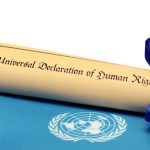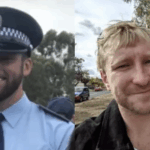DPP Investigates Case of Boy Shafted by Prosecution and Own Lawyer

We recently reported on the case of a 15-year Sudanese refugee, known only as ‘JB’, who spent seven years in prison for murder after both the prosecution and his own defence lawyer acted improperly by withholding evidence which raised significant doubt regarding his guilt.
Now, the NSW Director of Public Prosecutions (DPP), Lloyd Babb SC, has launched an inquiry into the conduct of those involved.
The story so far…
A Supreme Court jury found that JB had fatally stabbed Mr Spowart, an innocent bystander, during a 2008 gang brawl in Sydney’s west, after he asked for a cigarette and was rebuffed.
“Apparently reacting out of a wounded sense of pride, the offender threw a punch,” the trial judge said.
“Despite his age, his life experience suggests that he was fully cognisant of the lethal nature of knife wounds inflicted to the chest and abdomen.”
The judge sentenced JB to 23 years in prison, with a 16-year non-parole period. The child served out nearly seven of those years, before new facts came to light that set him free in April this year.
Unreliable confession
A police informant, known as ‘A107’, claimed that JB had confessed to stabbing Edward Spoward around the time of a police interview, something which JB has always denied.
During the original trial, the prosecution submitted that the jury could confidently convict JB based on the alleged confession alone.
However, the fact that A107 was a police informant, and had avoided prison by testifying against JB, was never disclosed to JB’s barrister. In fact, it was withheld by the DPP solicitor, the prosecution barrister and the boy’s own criminal defence solicitor, Robert Kaufmann, who incredibly went on to represent A107 in the very case for which he avoided prison after testifying against JB – a monumental conflict of interest.
The failure to disclose this crucial information meant JB’s barrister was unable to cross-examine A107 about the fact he was a police informant and had a vested interest in testifying against JB.
The DPP will also be examining whether it was proper for the prosecution to submit that the jury could convict on the alleged confession alone, given that it knew the credibility of that supposed confession was significantly undermined by A107’s status and motive for testifying.
In the NSW Court of Criminal Appeal
The NSWCCA found in its April judgment that JB’s trial had miscarried because of “failures of the prosecuting authority”.
The NSW Attorney-General supported JB’s appeal, submitting that the prosecution had failed in its ethical duties in a number of significant respects. Among other things, the Attorney-General acknowledged that the Crown Prosecutor and his instructing solicitor had met with A107, but notes of that meeting “appear to have been edited” and did not mention that A107 was a police informant.
When A107 told police JB had confessed to stabbing Spowart, A107 was himself facing charges of having defrauded victims of $40,000.
Police later swore an affidavit which outlined the vital “assistance” A107 had given police in the JB case, and A107 avoided prison altogether primarily because of that affidavit.
As to the conduct of JB’s own lawyer, the Attorney-General noted that:
“…the applicant’s solicitor had an undisclosed conflict of interest. It was not known to the applicant nor his defence counsel (including on appeal) that the applicant’s solicitor at the applicant’s trial, Robert Kaufmann, who had commenced to act for the applicant from the time that the applicant was charged, was already acting at that time for A107 in respect of the fraud offences.
“Mr Kaufmann continued to act for A107 until finalisation of A107’s sentence proceedings for the fraud offences at which the affidavit of assistance was tendered, even though he was acting for the applicant during the same period. He continued to act for the applicant for the duration of the applicant’s trial and the applicant’s appeal to the CCA.”
Where to now?
The conduct of all parties will now be assessed by the DPP, who has the power to bring criminal charges for a range of offences, including perverting the course of justice.
NSW Police have also launched their own internal investigation into the matter.
It is unclear whether complaints have been made to the Legal Services Commissioner against the prosecution and defence lawyer concerned.
One would expect those involved to face serious consequences, in order to deter others who may similarly discard their ethical obligations for their own purposes, regardless of the interests of justice.






